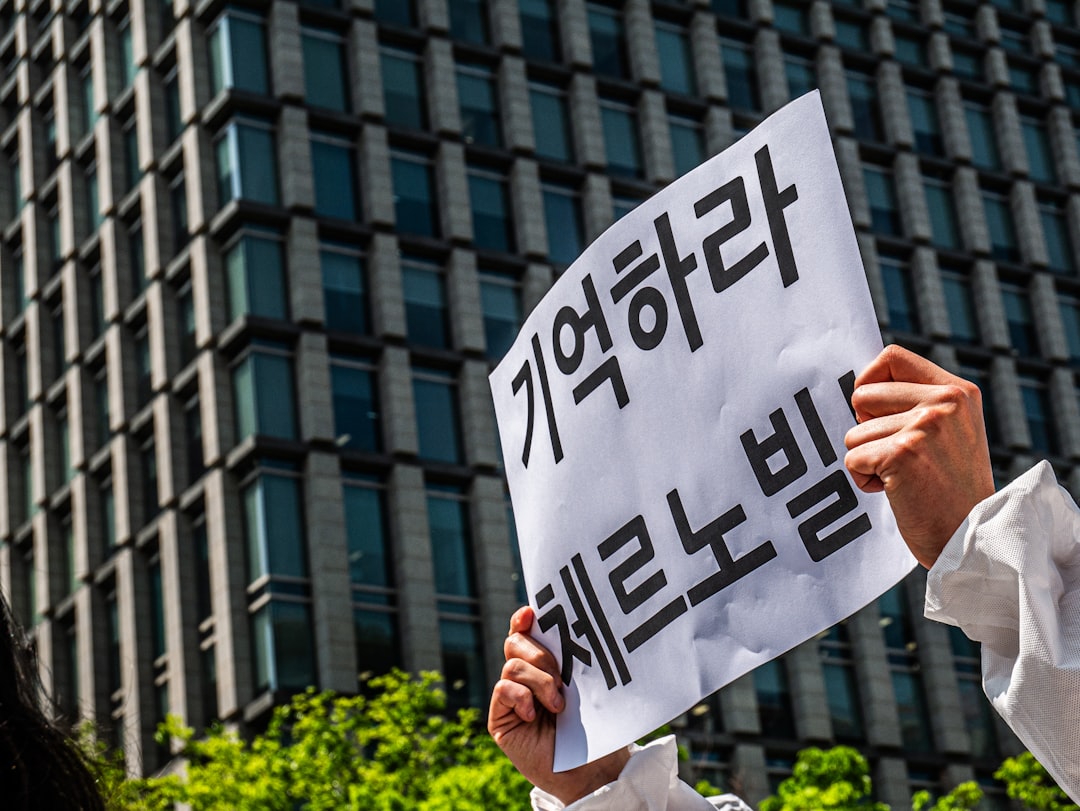No products in the cart.
Harnessing Career Justice: Advocacy Inspired by Korean Thrillers
Explore how Korean thrillers can inspire workplace advocacy and boundary setting, equipping professionals with essential career protection strategies.
Seoul, South Korea — In a world increasingly defined by workplace dynamics, the concept of career justice resonates with many professionals. Inspired by the gripping narratives found in Korean thrillers, individuals are learning to navigate toxic environments and advocate for themselves effectively. These films are not just entertainment; they offer compelling lessons on professional boundary-setting and career protection strategies.
One of the most notable films in this genre is “Parasite,” which, while primarily a commentary on class disparity, also highlights the struggles of characters as they navigate their professional lives. The film’s portrayal of ambition and social mobility speaks volumes about the complexities of maintaining one’s integrity in a competitive environment. Such narratives encourage viewers to reflect on their own workplaces and the challenges they face.

The Need for Workplace Advocacy
In recent years, the workplace has become a focal point for discussions about mental health, employee rights, and career justice. According to a 2022 report by the World Health Organization, over 300 million people globally suffer from depression, much of which can be attributed to toxic work environments. Professionals increasingly seek ways to advocate for their mental well-being and professional boundaries. This shift is particularly relevant for younger generations—those aged 16 to 35—who are more vocal about their needs and expectations in the workplace.
Films like “The Call” and “Midnight Runners” explore themes of justice and personal agency, emphasizing the importance of standing up against unethical practices. These stories resonate with audiences who often find themselves in challenging work situations, prompting them to consider their own actions and responses. The characters’ journeys offer relatable frameworks for identifying toxic behaviors, setting boundaries, and seeking justice.
The Need for Workplace Advocacy In recent years, the workplace has become a focal point for discussions about mental health, employee rights, and career justice.
Strategies for Navigating Toxicity
Understanding how to confront workplace toxicity requires a blend of self-awareness and strategic action. Here are some actionable strategies inspired by the narratives of these films:
- Identify Red Flags: Much like characters in a thriller, professionals should be vigilant about recognizing warning signs of toxicity. This includes micromanagement, lack of support, and a culture of blame. Awareness is the first step in advocacy.
- Set Clear Boundaries: Establishing personal and professional boundaries is crucial. This may involve communicating your limits regarding workload, availability, and workplace interactions. Learning to say no can empower individuals to protect their time and mental health.
- Seek Allies: Just as protagonists often find strength in numbers, professionals should seek support from colleagues. Building a network of allies can help in navigating conflicts and amplifying one’s voice.
- Document Your Experiences: Keeping a record of incidents can be invaluable. Whether it’s an email chain or notes from meetings, documentation can serve as evidence if you need to escalate issues to management or HR.
- Engage in Open Dialogue: Foster a culture of transparency by encouraging open conversations about workplace culture and mental health. This can lead to positive changes and a healthier work environment.
Counterpoints and Perspectives
While the narratives of Korean thrillers provide valuable insights, it’s essential to acknowledge differing perspectives on workplace advocacy. Some argue that the portrayal of extreme situations in these films may not reflect the everyday realities of most professionals. Additionally, there is a concern that focusing too heavily on personal agency might downplay systemic issues requiring organizational change.
However, it’s crucial to recognize that individual actions can lead to broader cultural shifts. By advocating for oneself, employees can influence company policies and contribute to a healthier work environment. The stories of resilience portrayed in these films serve as a reminder that change often begins at the individual level.
Embracing a Future of Empowerment
As workplace dynamics continue to evolve, the lessons drawn from Korean cinema offer a unique lens through which to view career advocacy. Professionals are encouraged to embrace their agency, identify toxic traits, and foster supportive networks. By doing so, they not only protect themselves but also contribute to a culture that values mental health and professional integrity.
Embracing a Future of Empowerment As workplace dynamics continue to evolve, the lessons drawn from Korean cinema offer a unique lens through which to view career advocacy.
The narrative surrounding career justice is not just a fleeting trend. It represents a fundamental shift in how younger generations approach their careers, advocating for environments that prioritize respect, balance, and well-being. As these stories unfold in real workplaces, the movement toward a more just and equitable professional landscape is not only possible but inevitable.











